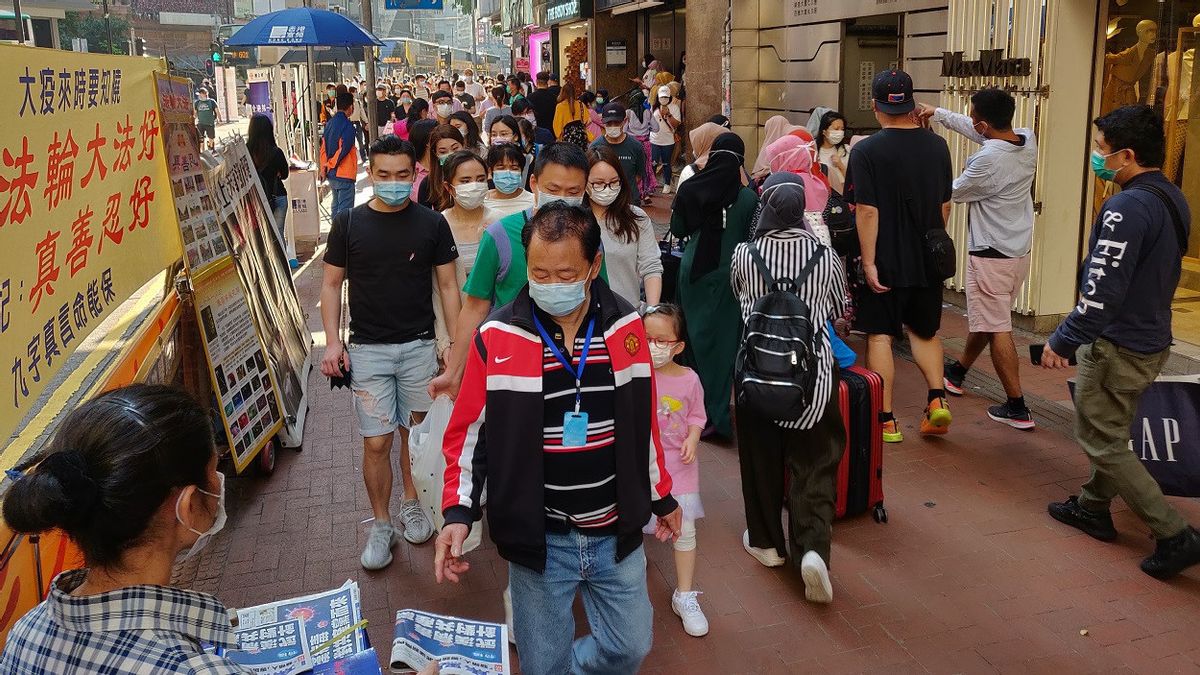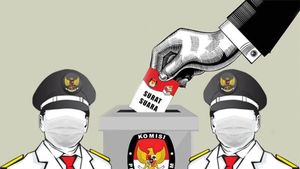JAKARTA - Chinese citizens enthusiastically welcomed the withdrawal of the COVID-19 tracking app used to track whether they had traveled to the COVID-hit area on Tuesday, in the latest easing of some anti-virus rules in the country.
When authorities deactivated the 'travel code' app at midnight on Monday, four Chinese telecommunications companies said they would delete user data related to the app.
"Goodbye travel code, I hope you will never see you again," said a post on social media platform Weibo, where netizens cheered on the death of an app that feared it could be used for mass surveillance.
"My best hand to exert energy during the epidemic must now be withdrawn," wrote another user.
To all relief against last week's decision to start authorizing the government's strict 'zero-COVID' policy, there are concerns China may now pay the price, as it may protect its 1.4 billion people too well from the virus.
The potential spike in infections during the Lunar New Year holiday next month, when people travel across the country to gather with families. That's a danger to a population that lacks "group immunity" and has relatively low vaccination rates among the elderly, according to some analysts.
Travel codes are mainly used to track domestic travel in China. In addition to the app, authorities are also using so-called health codes, which residents should scan to enter public places, to check if they may have been in contact with the virus.
Langkah yang dilakukan minggu lalu untuk melonggarkan pembatasan COVID, termasuk menghentikan pengujian wajib sebelum banyak kegiatan publik dan membarang karantina.
Long queues outside the fever clinic are a worrying sign that a wave of infections is on the rise, although official tally of new cases has tended to be lower in recent weeks, as authorities have reduced testing.
While China has not announced that the health code will be removed, several cities, including Shanghai, said residents were no longer required to show the code when entering places such as shops and restaurants.
The easing of this control, three years after the pandemic, comes after historic protests against economic-damping restrictions.
Demonstrations, which ranged from candles in Beijing to street clashes between angry citizens and riot police in Guangzhou, have been China's biggest public dissatisfaction show on the mainland since President Xi came to power in 2012.
China has closed its borders to international travel since the pandemic first erupted in central China's Wuhan City in late 2019.
International flights are still at a lower rate than pre-pandemic, with entrants still having to quarantine for eight days.
Analysts say the reported decline in new cases could reflect a drop in testing requirements, rather than the actual situation on the ground.
"The rapid spike in infections in major cities may only be the beginning of a large wave of COVID infections," Ting Lu, analyst at Nomura, said.
"We consider that the migration around the Lunar New Year holiday at the end of January could lead to an unprecedented spread of COVID," he said.
Para ahli mengatakan, sistem perawatan kesehatan China yang lembuh dapat dengan cepat terdominasi jika ketakutan itu terwujud.
In the Chinese capital, Beijing, queues of people outside the fever clinic at a hospital in the high-end Chaoyang district spanned 30 meters, according to a Reuters witness.
The vacant seats on commuter trains and deserted restaurants in Beijing have underscored some doubt, to embrace new freedoms after long restrictions since the start of the pandemic.
The English, Chinese, Japanese, Arabic, and French versions are automatically generated by the AI. So there may still be inaccuracies in translating, please always see Indonesian as our main language. (system supported by DigitalSiber.id)













